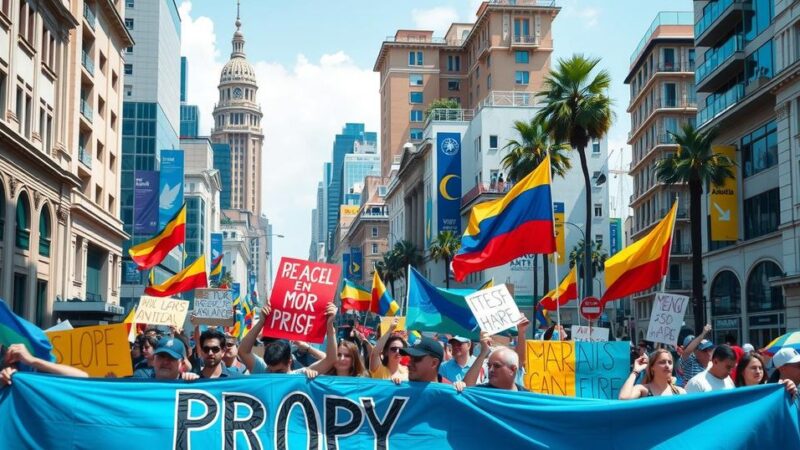The CEO of COP30, Ana Toni, argues that the expectations placed on annual COP climate summits are unrealistic and emphasizes the need for continuous climate action beyond these events. She highlights the limited involvement of key decision-makers in COPs, calls for more aggressive climate plans, and underlines the inconsistency of progress made by nations.
The CEO of COP30, which is scheduled to take place in Brazil this November, emphasized that the global community expects too much from the annual COP climate summits. Ana Toni, Brazil’s National Secretary for Climate Change, stated the need for continuous climate action beyond the confines of UN climate negotiations. She articulated that while COPs are significant, they should not be viewed as “silver bullets” that can resolve climate issues single-handedly, as real change occurs daily.
Toni pointed out the limitation of COPs, where delegations often consist of climate or environment ministers, disregarding that critical climate decisions are also made by finance, transport, agriculture, and energy ministers who usually do not attend these summits. She advocated for moving beyond the confines of the Paris Agreement to promote collaborative action across various sectors, highlighting the essential contributions from the private sector and local governments.
In light of recent commitments made at COP29 to achieve a collective climate finance target of $300 billion annually by 2035, it is noteworthy that some promises remain unfulfilled. For example, just three months after COP29, the UK government cut its aid budget – a primary source of climate finance – despite the concerns expressed by its climate minister. This inconsistency raises questions about the effectiveness of past commitments to address climate challenges.
Toni’s perspective diverges from the optimistic narratives presented by earlier COP leaders who suggested that summits like COP26 and COP28 would significantly advance global climate efforts. However, greenhouse gas emissions continue to rise, and concerns about surpassing the 1.5°C limit set in the Paris Agreement are growing, causing skepticism regarding the efficacy of these annual dialogues.
UK climate envoy Rachel Kyte remarked on the sluggish response of nations to the Paris Agreement, pointing out that many countries believed their commitments were sufficient, neglecting vital aspects like integrated financial strategies for fostering low-emission and climate-resilient development.
In conclusion, the COP30 CEO, Ana Toni, underlines the imperative for consistent climate action beyond annual meetings, emphasizing that COP events should not be erroneously relied upon as the primary solution for climate challenges. By urging collaborations across different governmental sectors and involving the private sector, she calls for a proactive approach to climate issues. Furthermore, addressing the disparity between commitments and actions remains essential for achieving meaningful advancements in the fight against climate change.
Original Source: www.climatechangenews.com






